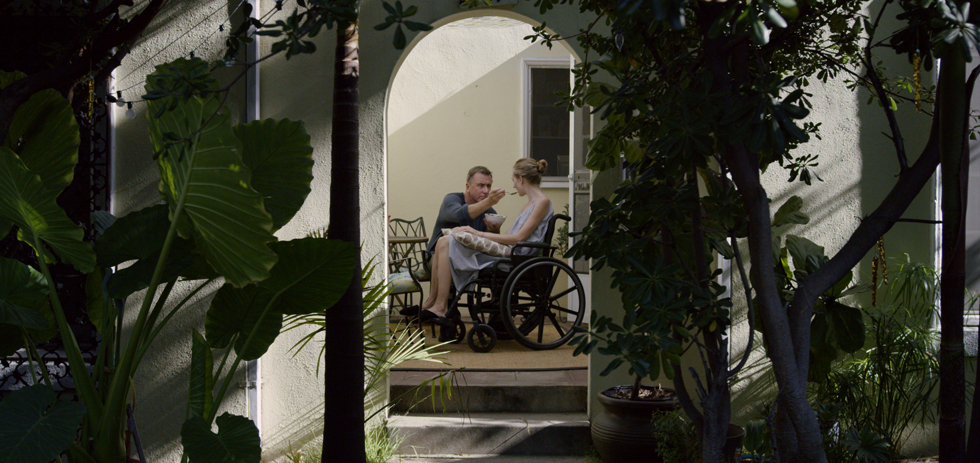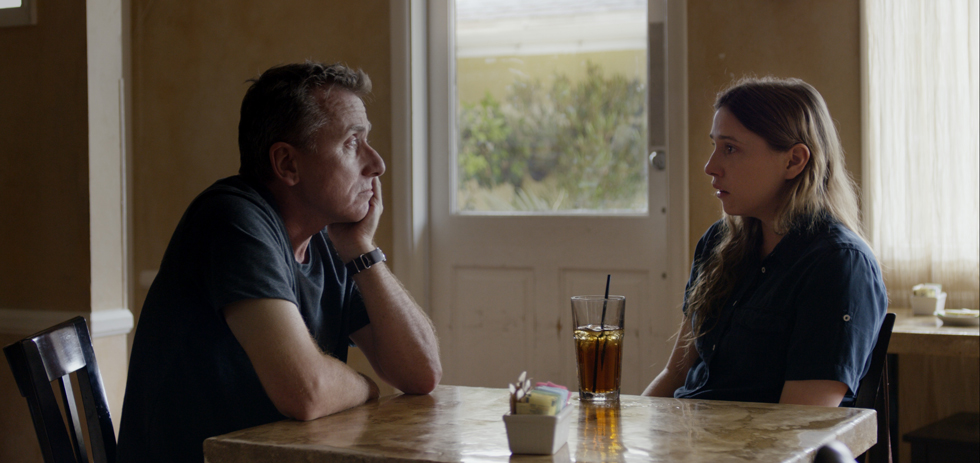
Tim Roth has always been the least venerated of the Brit Pack actors who broke into Hollywood in the early 1990’s, including Daniel Day-Lewis and Gary Oldman, but he’s the one with the most formidable filmography. Roth came of age in films like Alan Clarke’s Made in Britain, Peter Greenaway’s The Cook, the Thief, His Wife & Her Lover and Stephen Frears’ The Hit. In America he starred in Reservoir Dogs and Pulp Fiction, Robert Altman’s Vincent & Theo, and James Gray’s debut Little Odessa.
Roth has often been lumped with Oldman – two working-class boys with a knack for playing volatile men, who landed in Hollywood and fell straight into the arms of a young Quentin Tarantino. They directed their first and only films within a couple of years of each other: Oldman’s Nil By Mouth in ’97, Roth’s The War Zone in ’99, both heavily autobiographical stories of abuse by monstrous fathers, and both starring Ray Winstone. Oldman, like Day-Lewis, has always been the chameleon, but Roth had subtlety on his side. The difference was there at the beginning. In Mike Leigh’s Meantime (1984), as a skinhead named Coxy, Oldman’s mannerist tendencies were already loudly on show: he sits inside pipes, bangs them like a lunatic, and shouts a lot. Roth plays the withdrawn protagonist whose speech is so faint it sounds pre-emptively apologetic. It’s a moving performance, in which a young actor is unusually unafraid to be recessive.
These days, while Oldman languishes in supporting roles in big-budget franchise bait, give or take a Tinker Tailor Soldier Spy, and Day-Lewis is cursed with the expectation that every performance he gives will be Important (will we ever see him play an ordinary working man: a policeman, say, or a nurse?), Roth’s buttoned-down naturalism – and his taste – has led to his most fertile run in twenty years. Following on from the one-two punch of Nicholas Jarecki’s Arbitrage and Rufus Norris’ Broken in 2012, Mexican director Michel Franco’s Chronic makes expert use of Roth’s inscrutability. The actor headed the Un Certain Regard jury at Cannes in 2012, and awarded the prize to Franco’s After Lucia, about a father in Mexico whose daughter is subjected to horrific bullying at a new school. Franco’s English-language debut is less disturbing but just as rigorously controlled.
Roth plays a nurse in Los Angeles who specialises in home care. The first patient we see is an emaciated young woman too weak to stand, who sits in the shower while Roth’s David lathers her with soap and scrubs her down. Before that, in the film’s opening shot, we’ve seen him wait in a car outside a house for a young woman to emerge, then follow her car in his own. Later, he scrolls through the same woman’s photographs on Facebook. Tender caregiver though he seems to be, David is also a mystery, and possibly a creep.
He moves on to another patient, a wealthy man recovering from a stroke. He’s professional and quietly solicitous, and laughs indulgently when the patient starts watching porn on his iPad. The man’s wife and children (including Australian actress Claire van der Boom) hover awkwardly around him and begin to resent David’s intimacy with their father. Roth is supremely convincing as a nurse, partly because his movements are so exact. As David turns a patient on their side to change the sheets or dresses a dead patient prostrate on a bed, Roth has the calm economy of a man who’s done this a thousand times before.
Franco favours the long, unbroken mid-shot. He doesn’t use a score. His austerity of style and confronting subject matter have meant his films are routinely compared to Michael Haneke’s, though Franco’s couldn’t look less European. Shooting in Mexico in his previous films and now Los Angeles, his movies have a stucco sunniness that makes the horror within them – his first film was about siblings kidnapped and forced to have sex on camera – seem both drably normal and doubly jarring.

Outside his work, where he seems competent and dedicated, David routinely appropriates the lives of his patients in conversations with strangers, telling them, say, that he’s an architect, or that his wife died of AIDS. He knocks on the door of a stylishly mod home and tells the owner that he’s related to the architect who designed it and would like to have a look around. He does so with uncomfortable unhurriedness.
Franco is at pains to make David seem just a bit off but some of these sequences feel like red herrings – in particular his pursuit of the mystery girl. Her identity is revealed when David runs her down on campus. The shot is set up (behind David’s shoulder as he walks behind the girl, getting gradually closer, then drawing level but not attempting eye contact) to make him look like a stalker. Given whom she turns out to be – and most will have guessed by this point – David’s approach seems bizarre at best, and at worst not quite credible.
The matter of sympathy in Chronic – our own, and the writer-director’s for his subject – is hazy. When David’s not tending to patients or fibbing about his profession in bookstores, he’s running: on treadmills, along leafy suburban streets. In the gym he asks an attendant for a towel, but when the guy takes the towel out of its packaging and hands it to him, David pointedly asks for another. He explains dispassionately that the whole point of the wrapping is that nobody’s hands will touch the clean towel before his, and walks off. He’s fired from his agency after the family of one of his patients files a sexual harassment suit, and it’s strongly implied it’s not the first. His guilt seems dubious but his innocence is never underlined either – by David or by the film.
Roth’s the rare actor who can make a lack of openness compelling rather than opaque; so much so that when Franco does reveal David’s past it almost feels too prescriptive. Chronic ends on a note that bolds the film’s title. The final scene is visceral in a manner utterly unlike everything that’s come before it, which is perhaps why it proved divisive at Cannes. But it’s of a piece with Franco’s picture of life in general: a series of scenes repeated until they’re interrupted by death. People running nowhere, daily, and to the same place.
Across the Staff:
| Conor Bateman | |
